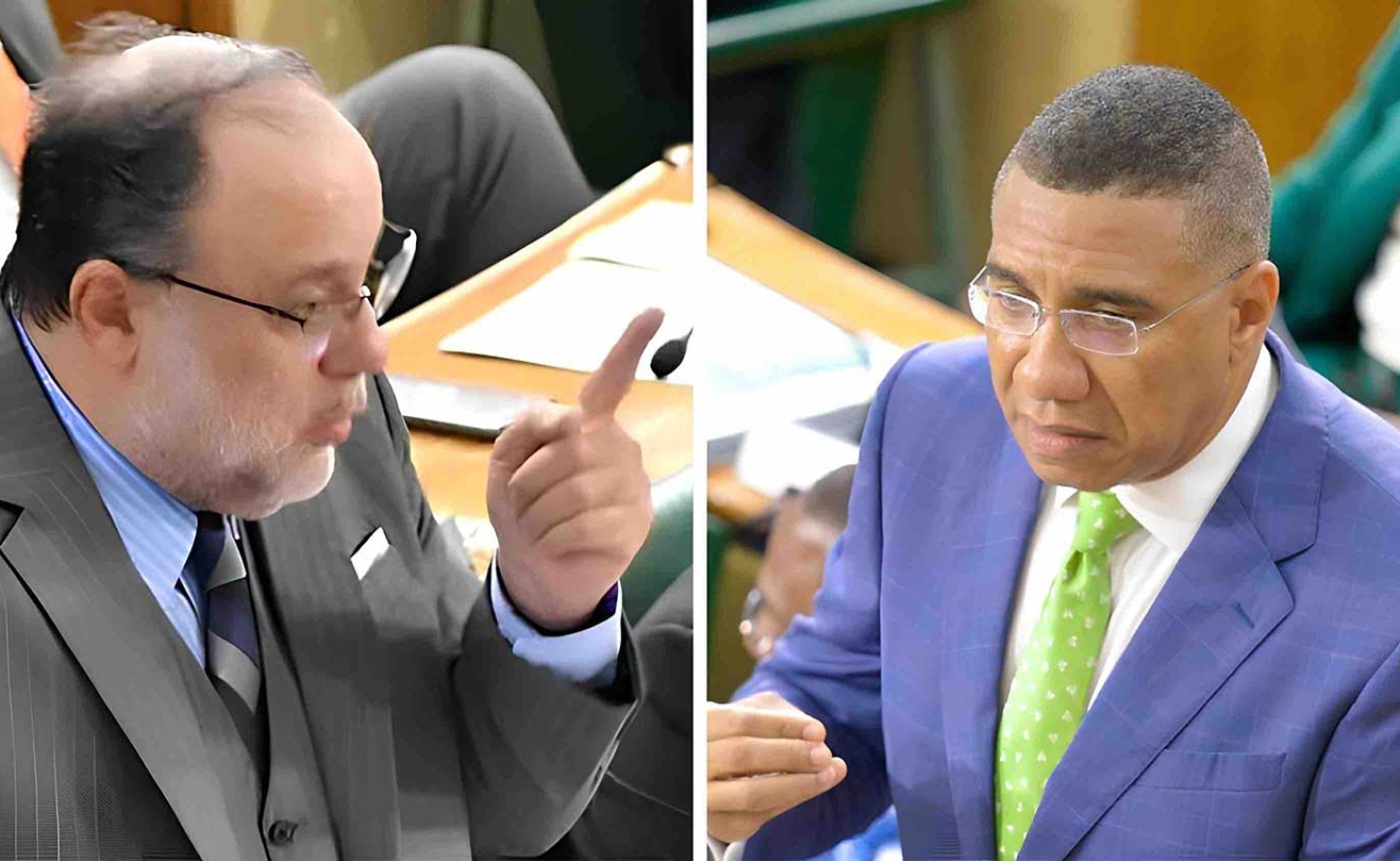JAMAICA | Let’s Talk! Golding Calls out Holness for Passing the Buck on Constitutional Reform

Mark Golding calls Andrew Holness's bluff on constitutional reform, exposing the gap between public rhetoric and political will
KINGSTON, Jamaica October 3, 2025 - The words hung in the air at King's House like a promise waiting to be broken. "Mark, let us partner together to complete the work we started in making Jamaica a republic," Prime Minister Andrew Holness declared at his recent swearing-in ceremony, his voice carrying the gravitas befitting the moment.
It was the kind of statement that makes for excellent soundbites and better headlines—a public embrace of bipartisanship on the most consequential question facing post-independence Jamaica.
Then came the letter.
Not an invitation to sit down, leader-to-leader, to chart the course toward full sovereignty. Instead, a polite suggestion that Opposition Leader Mark Golding should meet with the Minister of Justice—a bureaucratic deflection that transformed partnership from aspiration to administrative footnote.
The Constitutional Imperative
Golding's reply, dated October 3, 2025 and deliberately made public, doesn't mince words about what such deflection means.
His letter lays bare a mathematical reality that no amount of political theater can obscure: without a two-thirds majority in either House of Parliament, Holness cannot reform Jamaica's Constitution alone. Partnership isn't a courtesy—it's a constitutional requirement.
The stakes could hardly be higher. Jamaica's "unfinished circle of independence," as Golding calls it, leaves the nation tethered to Britain in three fundamental ways: the British Monarch remains Head of State, the Privy Council in London serves as the final court of appeal, and the Constitution itself originates from an Order in Council of that same Monarch.
These aren't merely symbolic vestiges of colonialism—they represent genuine limitations on national sovereignty.
History offers a roadmap. Norman Manley and Alexander Bustamante collaborated during the transition to independence. PJ Patterson and Edward Seaga partnered on the seminal constitutional reforms of the 1990s. Even Bruce Golding, in 2010, acknowledged the imperative of cross-party cooperation when introducing the Charter of Fundamental Rights and Freedoms.
The Protocol Problem
But precedent, it seems, is no match for political convenience. Holness's decision to route Golding through the Minister of Justice reveals more than mere procedural preference—it exposes the chasm between partnership as public performance and partnership as political practice.
Golding's objection is surgical in its precision: "With respect, Prime Minister, that approach will not initiate the required partnership of which we speak." The understated language barely conceals the fundamental point: you cannot delegate nation-building to mid-level ministerial meetings when the work requires leader-to-leader commitment.
This isn't about protocol for protocol's sake. Constitutional reform of this magnitude—severing ties with the British Crown, establishing a republic, restructuring the nation's highest court—demands the kind of political capital that only heads of party can expend.
Ministers negotiate details; leaders forge consensus. Ministers manage processes; leaders make history.
The irony is particularly acute given the public setting of Holness's original overture. By declaring his commitment to partnership before cameras and crowds at King's House, he created expectations of serious engagement.
To then respond with bureaucratic redirection suggests either a misunderstanding of what authentic collaboration requires, or worse—a calculated decision that the optics of partnership matter more than its substance.
The Broader Caribbean Context
Jamaica's constitutional stalemate unfolds against a backdrop of accelerating decolonization across the Caribbean. Barbados made the leap in 2021, replacing Queen Elizabeth II with a Barbadian president in a ceremony that was both celebration and statement of intent.
Other CARICOM nations watch Jamaica's dance with detachment, some having already severed royal ties, others weighing their own futures.
The regional implications extend beyond symbolism. As the Caribbean seeks to assert itself on the global stage—from climate advocacy to economic integration—the spectacle of its second-largest economy still bound to its former colonizer's constitutional apron strings carries a particular sting.
CARICOM's push for reparations and recognition of historical wrongs rings hollow when member states cannot complete their own independence.
Yet Jamaica remains paralyzed, not by lack of public will or constitutional clarity, but by the failure of its political class to do what its predecessors managed: put nation before party, substance before spectacle.
The Path Forward
Golding's letter, made public as a direct response to Holness's public pledge, throws down a gauntlet the Prime Minister cannot easily ignore.
The Opposition Leader has called for a reconsideration, a genuine leader-to-leader meeting to establish "a basis for the required partnership, if the reform process is not to become another exercise in futility."
The ball is in Holness's court, and the entire Caribbean is watching. Will he rise to meet his own rhetoric, or will Jamaica's path to full sovereignty remain hostage to political maneuvering?
The answer will determine whether this generation of leaders joins the ranks of nation-builders or becomes a cautionary tale of opportunities squandered.
Jamaica's unfinished circle of independence awaits closure. The question is whether Prime Minister Holness possesses the courage to complete it.
-30-
